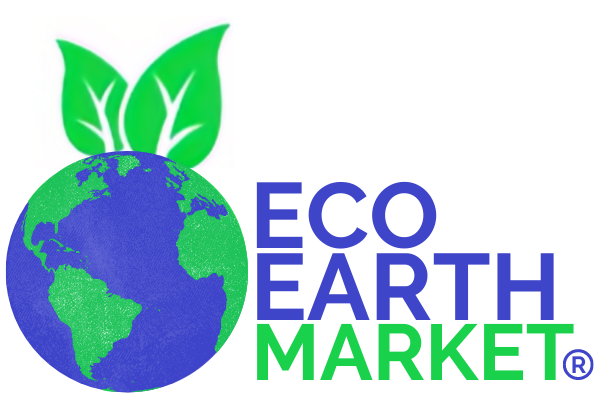
For centuries, many household items were made using natural materials, but in the early 20th century a new innovative substitute was discovered... Plastic! A synthetic, inorganic polymer that is easy to clean, has multiple uses and is very strong and durable.
-
Since the creation of polystyrene by Eduard Simon in 1839, many other polymers have been discovered by scientists. Polyethylene is the most popular plastic today, found in plastic bags and packaging.
Blinded by the benefits of plastic, the material has now reached every corner of the planet and is in nearly everything we produce and consume.
-
Plastic pollution is now a major problem, threatening our ecosystems by polluting our environments and the food and water we consume. Unfortunately, our consumption is not really slowing down.
However, many of us are becoming more eco conscious every day, by eating less meat, choosing ethical goods, recycling more, and trying to reuse as much as we can.
-
But have you switched out your household essentials away from plastic yet? If not, you should seriously consider. The eco-revolution is well underway, so find out why you need these 5 eco-friendly products in your home!
NUMBER ONE

The Bamboo Toothbrush is the perfect alternative to plastic. Some things are just better left old school right? The handle of these toothbrushes is made from 100% sustainable bamboo and is completely compostable. The bristles are made from part nylon and part plant-based fibres, sometimes charcoal. The bristles are part plastic, but you can plyer them out and recycle them, then compost the brush handle.
Why should you do this? Because in the USA alone, 1 billion plastic toothbrushes are thrown away every year, taking up to 500 years to decompose.
The toothbrush is an essential tool, used twice-daily and needs replacing every 2 – 3 months. That means on average a person uses around 4 toothbrushes every year.
If you haven’t already done this, consider buying a bamboo toothbrush the next time you make an eco-savvy shopping trip.
NUMBER TWO

Bamboo Cotton Swabs, also known as cotton buds, are useful brushes for face and skin care. Historically they were always wooden stemmed, but the boom of plastic since the 20
th century allowed them to be reinvented using plastic.
-
The big problem with plastic cotton buds is usually related to how they are disposed of. Many are misinformed and flush them down the toilet, harming the marine environment. During a 2018 beach clean in the UK, 22 plastic swabs were found for every 100 metres of British coastline.
-
Italy, Monaco, Scotland and England are among countries to that have or will of banned, plastic straws, stirrers and cotton swabs by the end of 2020, with Wales and the rest of Europe following suit in 2021. So next time you need to get some
cotton swabs, they will most certainly be made from
bamboo!
NUMBER THREE

Traditional dental flosses are mostly made from synthetic plastic called nylon, taking a long time decompose. The process of creating a waxy nylon floss also uses crude oil. Switching to a plant-based and eco-friendly dental floss is one great step you could take to reduce your plastic use. In recent years a few plant-based options have emerged.
These eco-friendly flosses use a unique blend of natural corn PLA, mint and candelilla wax to create the perfect vegan dental floss.
NUMBER FOUR

Did you know that sponges used to be eco-friendly?. That’s right, most sponges are made from cellulose and wood pulp, a naturally occurring sugar found in plant cells. This is used to create the squidgy sponges we love for cleaning. However, the plastic revolution gave rise to variations that use plastic scrubbers and scourers! Once again, another eco-friendly product that has turned to plastic over the years.
-
Well no more! Look at this new
sisal and wood pulp sponge. The scrubber is made from a plant called Sisal and works even better than its plastic predecessor. The sponge is also made from 100% cellulose and wood pulp, with no variations. If there is one cleaning product you need to switch out – it must be plastic sponges!
NUMBER FIVE

Do you drink a lot of tea and coffee? Always on the move? Consider a
reusable coffee cup! Did you know that many cups sold at big coffee chains contain a plastic coating, often rendering the cup unrecyclable.
-
In the UK, 7 million single use coffee cups are used and disposed of every single day. That is 2.5 billion cups per year. These figures alone are justification for switching to a reusable cup. There are many coffee cups on the market, but which one is for you? The
Wheat Straw Coffee Cup is the ideal choice. Made from a recently discovered bioplastic that is compostable within 6 months.







